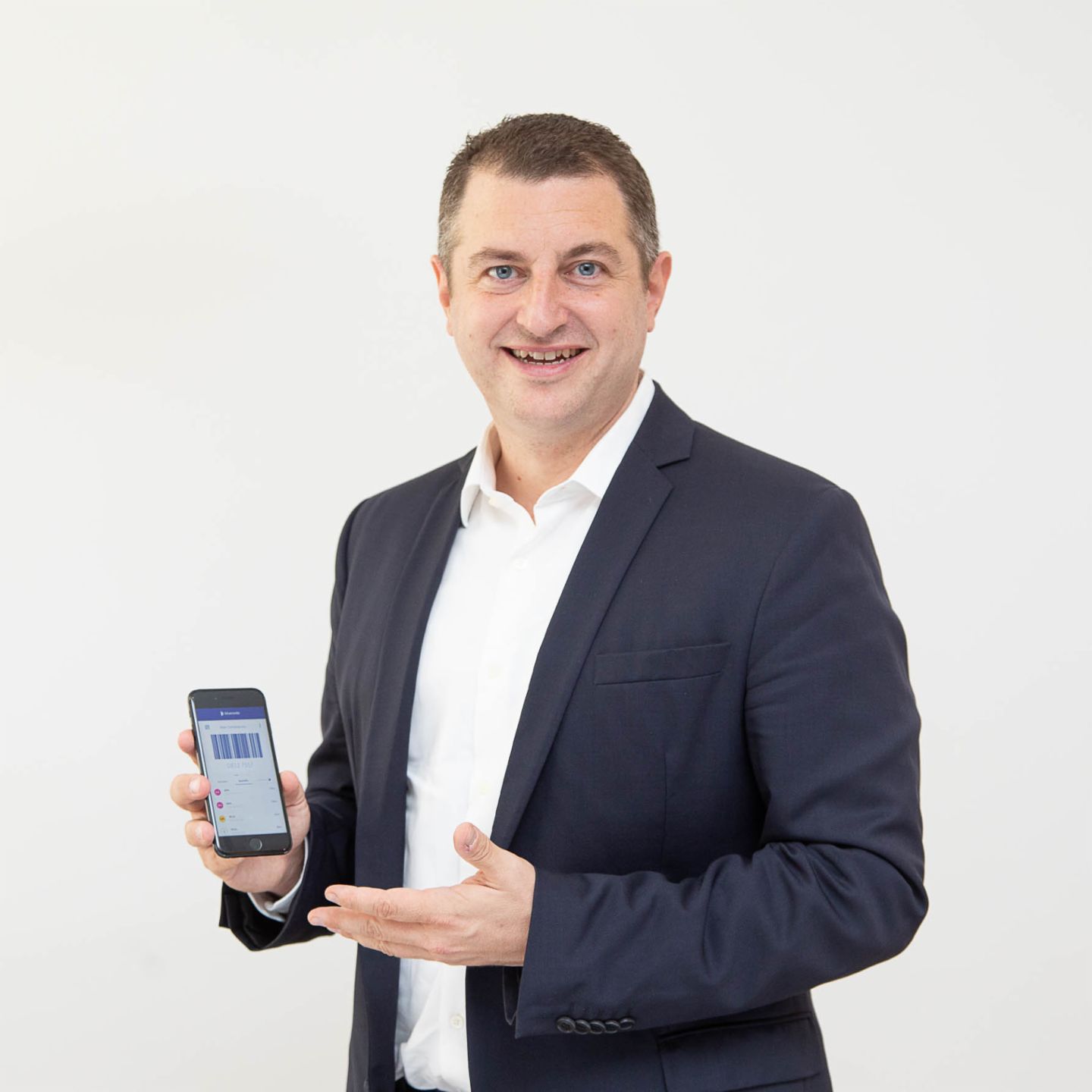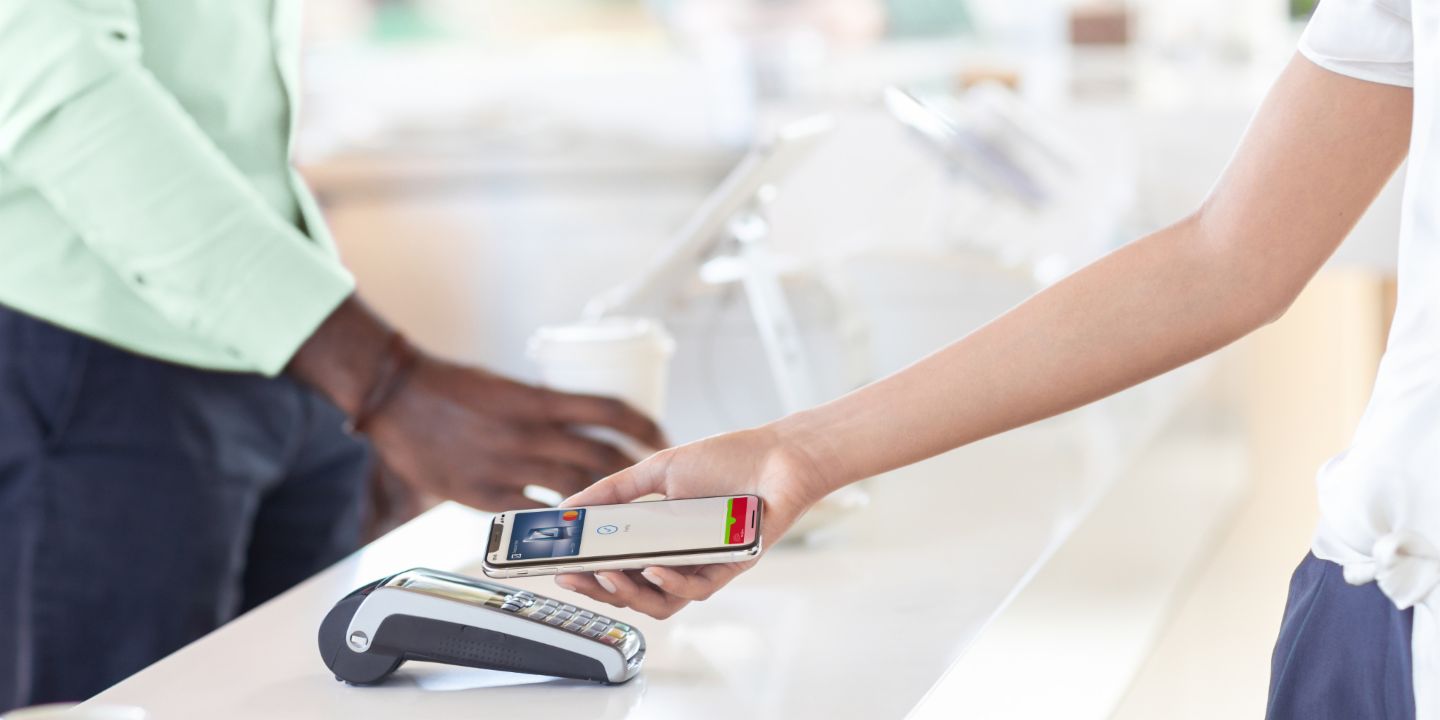Mobile payment: Why the euro is not mobile.
The future of mobile payments is being shaped in Asia and the USA. So far, no European provider has managed to get established. Credit card companies and technology giants like Apple and Google are dominating the market. But there are some European start-ups waiting in the wings.
- Payment by card or smartphone is outstripping cash, even in Germany where cash is king.
- Mobile payment providers from Asia and the USA are dominating the market and focusing on payment by credit card.
- Until now, European providers have generally pursued unilateral national approaches and so have not been able to prevail against international competition.

As travelers are well aware, cash is king in Germany. Try to pay by card here as a matter of course as you do in Sweden or Slovenia and you are likely to get an unpleasant surprise. So a new sight at the cash registers is all the more astonishing. Instead of reaching for their wallets, customers are taking out their smartphones. Since 2018, US technology giants Apple and Google have been offering their payment services in Germany and disrupting the market for mobile payments. European providers are concerned because the future of payment is being invented elsewhere, in Asia for example through Alipay and WeChat. Try to pay with a credit card in Asia and the response will often be a dismissive smile, because consumers there are using messenger apps for online and offline payments.
The European launch of Apple Pay and Google Pay may have had a lot of media coverage, but Korean smartphone giant Samsung is also trying to get a foot in the door with its Samsung Pay app, which is so far limited to Russia, Sweden, France, Italy and Switzerland in mainland Europe. The Swiss payment app Bluecode, which was initially introduced in Austria and more recently in Germany, has only had a much more modest impact on the market to date. It is competing with apps from the publicly owned German savings banks and loyalty card vendor Payback. “Alongside established market players, technology vendors and fintech start-ups are trying to win a share of the payment market through innovative products and services,” says Christian Meiske from management consultancy ZEB. The competitive pressure is huge, but so is the market potential. In Germany, for example, there are already 114 million cards with payment functions in circulation, even if they are only catching on very gradually for everyday transactions. 2018 was the first year in which customers used cards more often than cash for payments in the bricks-and-mortar retail segment.
The payment service provider doesn’t just earn transaction fees with every non-cash payment but also has a lot to gain in particular from the contact with consumers over their entire customer journey. “Mobile payment alone does not solve customer problems,” says Michael Eichhorn, Director Digital PoS and Pay at Payback, the largest loyalty card program in the German retail sector. “We believe in providing a service package; in our case this is a combination of collecting points, redeeming vouchers and mobile payment in one app.”

If you control the payment transactions you control the customers.
Google Pay & similar providers focus on credit cards.
Payback customers install the app and store their bank details. After entering their pin, the app generates a QR code which is scanned at the cash register and triggers a direct transfer via the European SEPA payment system. Bluecode also uses SEPA (including QR code), while the app from the publicly-owned German savings banks and cooperative banks is replacing the Girocard debit card at the cash register.
All other providers of mobile payment services process the payment via credit card, so they are based on the US payment systems Mastercard, Visa or Amex. On Android, these providers are Deutsche Bank, for example, plus all banks that offer their customers Google Pay, like Commerzbank. On iPhone, all payment apps need to use the in-house system Apple Pay, which is also based on credit cards.

“We are only European as long as we are paying cash,” says Blue Code CEO Christian Pirkner. “It’s all over as soon as we want cashless payment.” He attributes the failure of Europe to establish its own systems to parochialism. “The German Girocard is the best example; it’s a debit card that doesn’t work outside of Germany or online.” To date, Apple Pay has also not worked in combination with Girocard. Although the German Savings Bank Association (DSGV) talks about the “very positive discussions with Apple”, customers have so far only been able to use Apple Pay with Mastercard, Visa, Amex and Maestro cards.
And this is a problem for the savings banks, because as the largest remaining European card system, Girocard is their cash cow. Industry insiders say that if Apple were to charge the same for Girocard payments as for credit card payments it would pick off up to three quarters of the fees.
European mobile payment solution instead of national go-it-alone approaches.
The rules according to which the majority of everyday mobile payments flow from A to B are not written in Europe. This is something that the European Commission and the Deutsche Bundesbank (German central bank) complain about publicly, especially in the light of political developments in the USA. Bluecode and the payment services Momo Pocket from Spain, Pagaqui from Portugal, Vipps from Norway and ePassi and Pivo from Finland recently announced that they wanted to develop a European solution for mobile payments based on SEPA and Alipay’s QR technology.
“The race has not yet been decided,” says Meiske. “But it is likely to be difficult for new players that have to invest in the acquisition of retailers and consumers and offer the consumer a distinct added value.” Blue Code CEO Pirkner is convinced that only a European system in which national providers work together can prevent US dominance of this market and warns: “If you control the payment transactions you control the customers.”
Photo credits: Apple Pay, Christian Pirkner / Blue Code International AG
